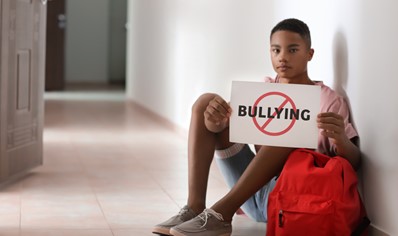
Does Your Child Injure Themselves? Here’s How to Help.
March 12, 2024
As children grow into their pre-teen and teenage years, they can become overwhelmed with stress and strong emotions. This includes feelings of anger, anxiety, hopelessness, loneliness, sadness, and more.
Some pre-teens and teenagers react to these strong emotions by injuring themselves.
Self-injury can mean:
- Scratching or cutting their skin with sharp objects.
- Hitting themselves with their fists or hard objects.
- Pulling out their hair.
- Burning themselves.
What are the warning signs of self-injury?
Many parents are shocked when they learn that their child has been harming themselves—especially if it has been happening for long periods of time. That’s because pre-teens and teens usually try to hide these behaviors from adults.
According to the Adolescent Self-Injury Foundation, parents can watch for some common warning signs of self-injury.
These include:
- Wearing long-sleeved shirts and long pants even in hot weather.
- Refusing to wear clothing that exposes arms or legs, such as bathing suits.
- Wearing gloves, arm bands, or other accessories that cover the entire hand, wrist, and forearm.
- Hiding sharp objects—such as knives, razors, pieces of broken glass, safety pins, tacks, or needles—in their bedroom, backpack, clothing, or shoes.
- Having an abnormal amount of bruises, scratches, cuts, burns, or broken bones.
- Often wearing bandages.
How can adults support a self-injuring pre-teen or teen?
Once a young person begins to self-harm, it can be very difficult to stop. They need support, but may not know how to ask for it.
Adults can help by:
- Understanding that self-injuring is a very serious and risky behavioral pattern.
- Remembering that young people cannot just “snap out of it.”
- Asking them what help they need—and do not need.
- Taking the child for emergency medical care if necessary.
- Researching self-injury to better understand how and why it begins.
- Being calm and nonjudgmental.
- Encouraging the pre-teen or teenager to talk with a counselor or doctor.
- Helping them to find a self-help group, so they don’t feel so alone.
- Reassuring the pre-teen or teen about their strengths and hope for the future.
Most of all, adults should be patient with the young person’s recovery. It can take a long time to stop self-injuring—but recovery is possible.
Need help for depression, anxiety, or other concerns?
Call Carelon Behavioral Health.
You do not need approval for individual, family, or group therapy. Also, you do not need a referral from your regular doctor.
English/Spanish interpreter services available 24 hours a day, 7 days a week.
STAR Medicaid: 1-800-945-4644
CHIP: 1-800-945-4644



